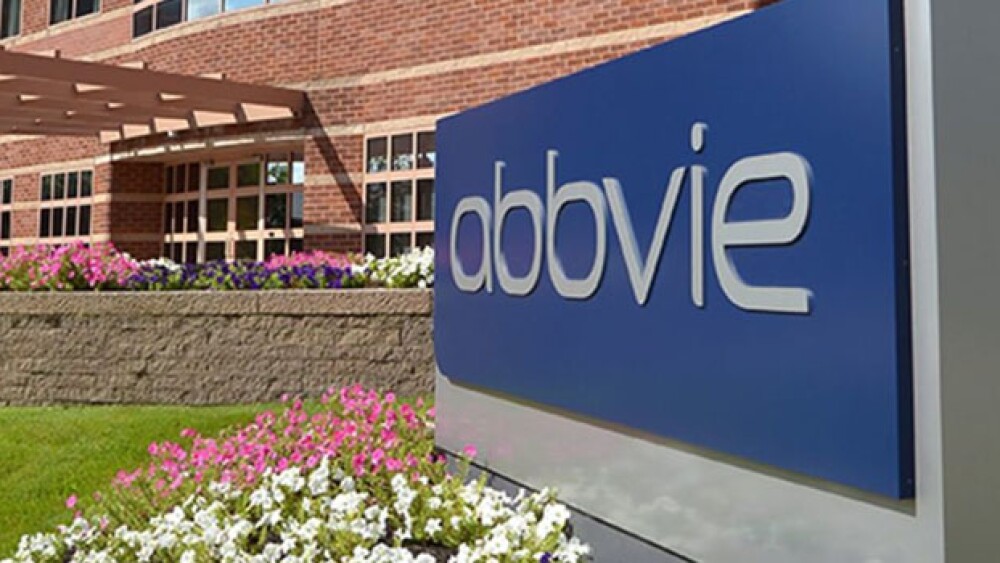Under the terms of the deal, AbbVie will grant Germany-based Boehringer Ingelheim a non-exclusive license for Cyltezo, its biosimilar to Humira.
Shares of AbbVie are up slightly this morning after the Illinois-based company once again held off biosimilar competition for Humira in the United States until 2023. This time, the company was able to resolve its Humira-based litigation with Boehringer Ingelheim.
Under the terms of the deal, AbbVie will grant Germany-based Boehringer Ingelheim a non-exclusive license for Cyltezo, its biosimilar to Humira. AbbVie said the U.S. license for BI’s Cyltezo will begin July 1, 2023. The German company will pay royalties to AbbVie for licensing its Humira patents. Additionally, AbbVie said Boehringer Ingelheim “acknowledges the validity and enforceability of the licensed patents.”
Specific terms of the settlement were not provided.
The two companies have been embroiled in a legal battle over BI’s planned launch of Cyltezo. Humira is the king-of-the-hill when it comes to global drug sales. In 2018, the drug generated $20 billion in revenue for the Illinois-based company. That massive influx of revenue is why the company has fought tooth and nail against any biosimilar that could cut into those sales.
Biosimilars are always uniquely different in composition from the branded drug which differentiates them from generic drugs, which are exact replicas of other drugs. They have been widely available in Europe since 2006, but the U.S. Food and Drug Administration (FDA) only granted the right to review and approve them when the Affordable Care Act was passed in 2010. Since then, the FDA has seen biosimilars as another tool to increase competition in the U.S. drug market.
AbbVie sought access to BI’s launch plans, which a judge awarded earlier this year. AbbVie had argued that Boehringer Ingelheim planned to launch Cyltezo ahead of the expiration of its Humira patents. Additionally, AbbVie argued that Boehringer Ingelheim was stockpiling its biosimilar ahead of its launch, which the company also claimed was an infringement of its patents, according to a February report in the Center for Biosimilars. Cyltezo was approved by the U.S. Food and Drug Administration in 2017.
Laura Schumacher, AbbVie’s chief legal officer, said the resolution was an important one for the company as it resolved all Humira-related patent litigation in the United States. Schumacher said the company will continue to invest in the development of new therapies for “the toughest health challenges” and will also continue to rely on “a robust patent system to protect that investment in innovation.”
Sheila Denton, Boehringer Ingelheim’s U.S. general counsel, said the company is proud of the role it played in raising awareness of biosimilars in the United States and for bringing more treatment options to U.S. patients.
“This resolution provides clarity regarding the availability of Cyltezo and allows us to focus on serving patients who need to manage their chronic disease,” Denton said in a statement.
In late 2018, Humira began to face biosimilar competition in Europe per deals AbbVie struck to protect its cash-cow. In Europe, Humira is now being challenged by biosimilars developed by Amgen, Novartis, Samsung Bioepis and Mylan.





